The Veterinary University Training and Research Centre, Thanjavur is relocated to the new premises on the Thanjavur-Trichy Highways NH 67 built under the Part II Scheme-"Establishment of Ethno Veterinary Herbal Research and Training Unit for Livestock Health Care" at Veterinary University Training And Research Centre, Thanjavur and functioning since 3.10.11
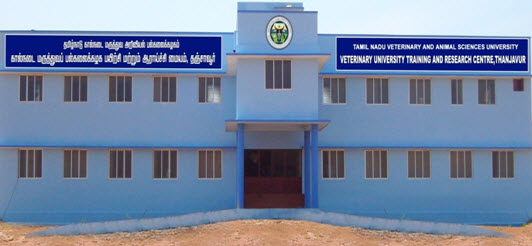
Knowledge of herbs for health care is an ancient practice that can be traced back to thousands of years. Most knowledge of the therapeutic use of plants is acquired through folklore, handed down by word of mouth. Ethno Veterinary Medicine (EVM) can provide low cost solutions to some of the health problems of our livestock, especially in rural areas. Patents / Bio-piracy issues may be tackled effectively by using EVM. For the increasing number of poor farmers cost effective treatment will be a priority in the coming years. Conditions like wounds and inflammation, gastro enteritis, rumen disorders, endo and ecto parasitism, reproductive disorders, mastitis in rural livestock have been successfully treated (exclusively with herbal preparations) by the EVM centre, Thanjavur. Popularizing EVM for primary animal health care in rural India, will help to conserve biological diversity of the precious herbs, and propagate the same. EVM, can pave the way for organic livestock production.
Empowerment of livestock farmers, especially rural women for self reliance in primary healthcare of livestock, to contribute to their own development has been the focus of the work in our centre over the last decade. Many herbal preparations have been assessed for clinical efficiency for over ten years under field conditions by EVM centre, TANUVAS at Thanjavur, India. The ultimate aim is to identify and refine such of those indigenous practices and methods which are effective in healthcare of animals. Farmers and quite a number of field veterinarians in the rural area, have been trained for using herbs in clinical conditions like wounds and inflammation, gastroenteritis, rumen disorders, endo and ecto parasitism, reproductive disorders, mastitis, dermatitis and for even severe infections of livestock. Let us keep the age-old (traditional) wisdom on. EVM seems to be a cost effective, culturally akin and environmentally sound idea for sustainable and organic livestock production.
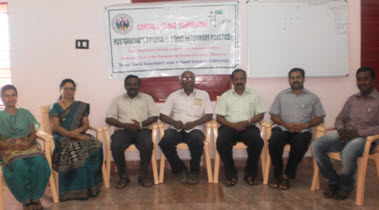
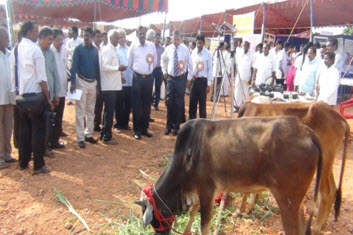
Pongal vizha Exhibition on 07.01.13
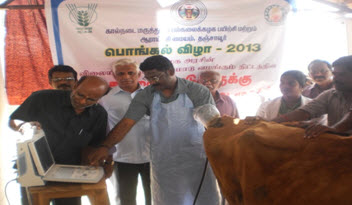
Infertility camps
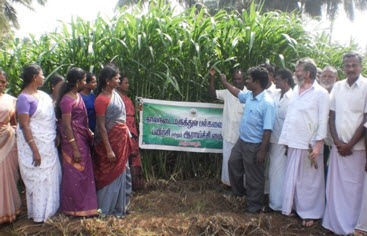
Training to Self Help Groups
Veterinary University Training & Research Centre,
Pillayarpatty,
Thanjavur - Trichirapally National Highway (Vallam Post),
Near RTO's office, Thanjavur – 613 403.
Phone No : 04362-264665
E-mail: thanjavurvutrc@tanuvas.org.in